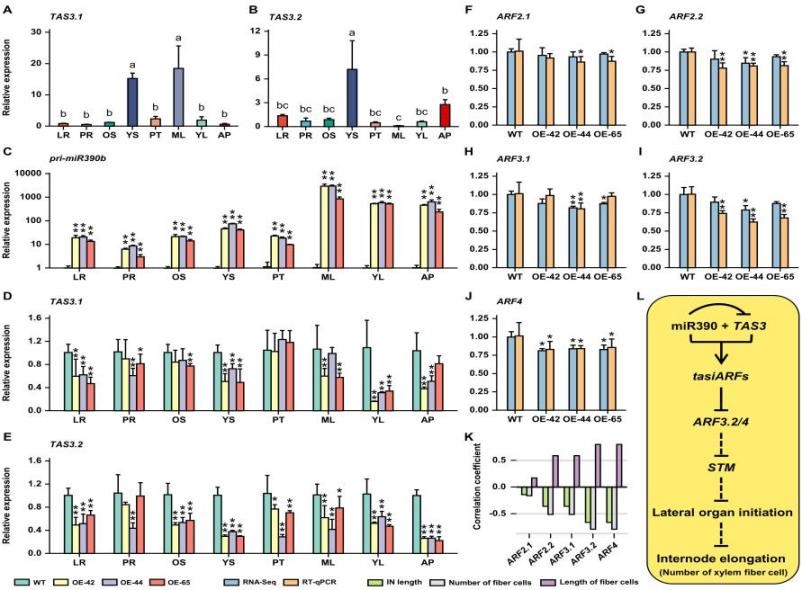
Fig. 1 Overexpression of miR390b promotes stem elongation in poplar.

Fig. 2 The transcription levels of genes and co-expression analysis between ARF expression levels and growth data.
The plant vascular biology research group of the College of Horticulture & Forestry Sciences at HZAU has published a paper titled “Overexpression of miR390b promotes stem elongation and height growth in Populus” in the journal Horticulture Research (Advance Access). This study indicates that miR390b can regulate stem elongation and height growth in Populus through miR390-TAS3-ARFs module. On top of offering an important reference for revealing the regulatory mechanism of tree height growth, this research also provides a theoretical basis for tree genetic improvement and high yield and rapid growth.
Populus, a fast-growing timber species planted globally and material for urban greening and ecological construction, has important economic and ecological values. The traditional poplar variety breeding, however, mainly relies on hybrid breeding and polyploid breeding with a long cycle, hindering the creation of new poplar varieties. With the improvement of poplar genetic transformation technology and the completion of whole genome sequencing of several poplar species, cultivating new poplar varieties with high quality and high yield through genetic engineering technology serves as an important and effective means. It can accelerate the process of forest tree breeding, meet the demand for wood and thus promote the development of modern forestry industry.
In this study with poplar as material, several microRNA candidate genes that may be involved in regulating poplar stem development were discovered through small RNA sequencing analysis at different developmental stages such as stem primary growth, secondary growth transition and secondary growth, among which miR390 was highly expressed during primary growth. The genetic transformation of miR390b in poplar indicates that overexpression of miR390b significantly promoted stem elongation and plant height and increased the xylem fiber cells in the longitudinal axis. Gene expression analysis and tobacco transient transformation experiments showed that TAS3.1 and TAS3.2 were the target genes of miR390, which could be directly cleaved by miR390. The expression levels of ARF2.2, ARF3.2 and ARF4, the downstream genes of miR390-TAS3 pathway, were down-regulated in the stem tip tissues of miR390b overexpressing plants. The expression levels of ARF3.2 and ARF4 were positively correlated with the length of wood fiber cells, and negatively correlated with the number of wood fiber cells and internode length. The results of this study revealed that miR390b regulates poplar stem elongation and height growth through the miR390-TAS3-ARFs module, which is scarcely reported in other plants.
Doctor Shi Qiaofang is the first author and Associate Professor Shi Xueping is the corresponding author. Participants in the study are: Professor Zheng Bo, Professor Guo Wenwu, Associate Professor Wu Xiaomeng and Doctor Tian Dongdong from the College of Horticulture and Forestry Sciences. Besides, Professor Li Feng and Associate Professor Du Kebing donated pMS4v2 and Populus nigra for the study respectively. This research was sponsored by the National Natural Science Foundation of China, the Science and Technology Project of Academy of Forestry in Shennongjia Forestry District, and the Fundamental Research Funds for the Central Universities.
Source: http://news.hzau.edu.cn/2022/1230/65447.shtml
Translated by Chen Hao
Supervised by Xie Lujie
